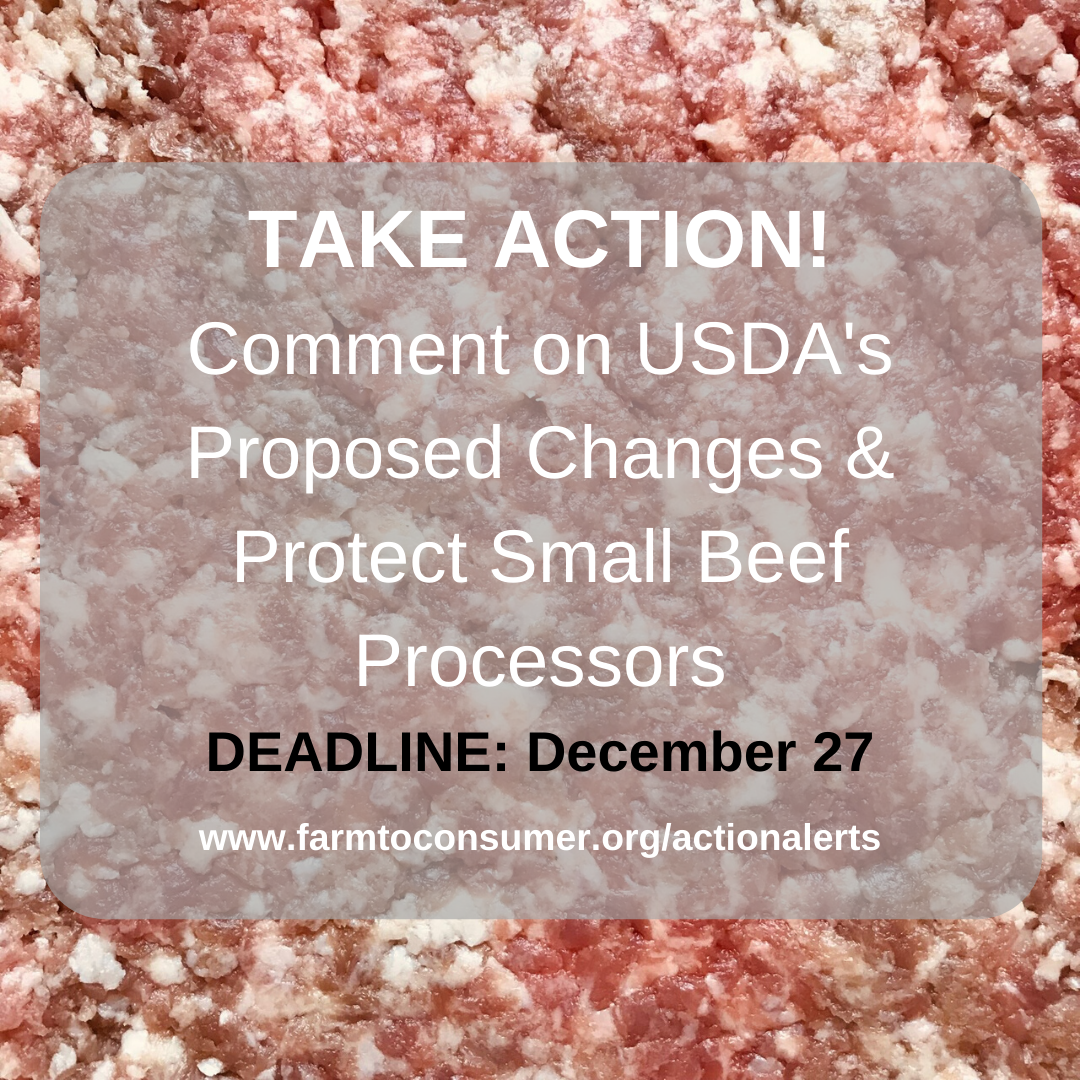In recent years, there has been an increase in illness due to Salmonella in ground beef that has been raised and processed at industrial farms and processing facilities.
The Food Safety Inspection Service (FSIS) of United States Department of Agriculture (USDA) is proposing changes in response to these outbreaks. While improvements are needed, the proposed changes are unlikely to solve the problem and more likely to cause problems for small-scale processors who are not the outbreak source.
FSIS already tests ground beef for Salmonella periodically, but because Salmonella is not an “adulterant” under the Federal Meat Inspection Act, these tests aren’t designed to identify meat that would make people sick from Salmonella. Instead, the tests seek to identify any presence of Salmonella, even if it is too low or of the wrong type to cause any human illness. If any Salmonella is detected, then FSIS treats it as proof that the processing facility’s “process controls” are inadequate.
If this happens, FSIS inspectors come in and demand that the facility change its Hazard Analysis and Critical Control Point (HACCP) plan to address the perceived flaw.
Large-scale facilities with entire departments of lawyers and consultants can deal with the agency demands. They may make some changes to their process, but for the most part, they can block attempts to make significant changes necessary to truly improve food safety.
But what happens to a small plant, that doesn’t have its own lawyers and experts? They quickly find themselves buried in paperwork and impossible demands and may be driven out of business. Yes, even if the Salmonella detected was at such a low level or a type that posed no real health risk.
This is already happening to small-scale poultry processors, and FSIS’s proposed changes are likely to lead to the same pattern for beef processors. It’s tough enough for small-scale poultry and livestock producers to find suitable processors, so putting more processors out of business could be catastrophic for independent farmers.
With this new change, FSIS is proposing to increase sampling frequency to once per week regardless of the size of the beef production (currently, smaller facilities are sampled twice a month max). The proposed rule also tightens the criteria by which FSIS decides whether an establishment is “meeting” or “not meeting” the pathogen reduction performance standards for Salmonella—but, again, the “not meeting” threshold is not based on whether the detection is likely to cause human illness.
Under the new proposal, FSIS would take the same number of samples from a small facility that processes 50,000 pounds/day as from a large facility that processes a million or more pounds of product per day. Facilities under 50,000 pounds/day will continue under the current rules.
To put this into perspective, 50,000 pounds of product is just 50 cows. Many small establishments process that much product in a day. The processes implemented by small establishments are different than those used by the largest establishments but are just as good if not better.
Take Action
Act now! FSIS is accepting public comments until December 27, 2019.
Read the rule and file comments online HERE.
TALKING POINTS
- Sampling frequency should be based on the amount of meat a processor processes. The processors should be separated into categories based on the processing methods, and FSIS should test every X pounds of product within the process categories.
- Testing should differentiate between the mere presence of Salmonella or other bacteria, and their presence at levels sufficient to cause human illness.
- The size of the processor should be taken into account since the proposed change ignores important differences between the smallest and largest industry processors. The proposed changes are burdensome for small processors that already have high levels of food safety measures and much greater traceability than the large processors.
YOUR FUND AT WORK
Services provided by FTCLDF go beyond legal representation for members in court cases.
Educational and policy work also provide an avenue for FTCLDF to build grassroots activism to create the most favorable regulatory climate possible. In addition to advising on bill language, FTCLDF supports favorable legislation via action alerts and social media outreach.
You can protect access to real foods from small farms by becoming a member or donating today.
